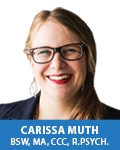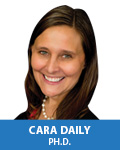 Important Notice:
Important Notice:
The speaker lineup has been revised from prior marketing materials. This website contains the most accurate and current schedule as of October 9, 2025.
Presented by Steven G. Feifer, D.Ed., ABSNP and Carissa Muth, Psy.D., CCC, R.Psych and Cara Daily, Ph.D.
Wednesday, December 3, 2025 – Friday, December 5, 2025 | Winnipeg, mb
The speaker lineup has been revised from prior marketing materials. This website contains the most accurate and current schedule as of October 9, 2025.
Wednesday, December 3, 2025 – Friday, December 5, 2025
8:30am – 4:00pm
Best Western Plus Winnipeg Airport Hotel
1715 Wellington Avenue, R3H 0G1
Winnipeg, MB
phone: 204.775.9889
fax: 204.775.4576
website: http://www.bestwestern.com/
Education and Clinical Professionals: K–12 Classroom Teachers, School Counsellors/Psychologists, Learning Assistance/ Resource Teachers, School Administrators, School Paraprofessionals including Special Education Assistants, Classroom Assistants and Childcare Workers. All other professionals who support students including but not limited to: Nurses, Social Workers, Psychologists, Clinical Counsellors, Family Therapists, Occupational Therapists, Speech Language Pathologists, Addiction Counsellors, Youth Workers, Mental Health Workers, Probation Officers, and Early Childhood Educators.
8:30am - 11:45am December 3, 2025
COURSE DESCRIPTION
This workshop will examine the impact of mental health conditions on students’ academic performance and social development, offering practical strategies schools can use to promote emotional wellness. Through the lens of brain-behavioural relationships, this workshop will explore how schools can create environments that support not only academic achievement but also emotional regulation, social skills, and overall mental well-being. Factors such as poverty, trauma, childhood abuse, parental neglect, and the lasting effects of the pandemic can disrupt key brain processes related to learning and emotional behavior, resulting in challenges for students both academically and socially.
The focus of this workshop is on early intervention, effective assessment, and evidence-based classroom strategies. We will equip educators, school counselors, and mental health professionals with the tools they need to support emotional wellness in students, helping them overcome emotional challenges and thrive academically. Participants will learn how to assess emotional wellness, implement social-emotional learning initiatives, and create nurturing, resilient school environments that foster positive outcomes for all students.
LEARNING OBJECTIVES

Steven G. Feifer, D.Ed., ABPdN is dually trained as both a nationally certified school psychologist and board certified pediatric neuropsychologist. He has more than 20 years of experience working directly in public education, and is currently in private practice assessing children…
12:45pm - 4:00pm December 3, 2025
COURSE DESCRIPTION
This 3-hour afternoon workshop will explore reading and written language disorders through a brain-based educational lens, offering participants targeted strategies for supporting students with learning challenges. The workshop will be divided into two key segments: reading disorders in the first half and written language disorders in the second, each designed to equip educators and clinicians with the practical tools necessary for effective intervention.
Understanding and Addressing Reading Disorders
The first part of the workshop will focus on differentiating dyslexia from other reading disorders, with a special emphasis on classifying developmental reading disorders into four distinct subtypes. Participants will learn how to identify each subtype and match it with evidence-based interventions to target the specific cognitive challenges associated with it. We will delve into essential cognitive constructs involved in the reading process, including:
Additionally, the Feifer Assessment of Reading (FAR) will be introduced as a diagnostic tool to assess reading abilities, helping to inform intervention planning and guide targeted support for students. Participants will gain hands-on strategies to assess reading difficulties and design appropriate interventions based on individual student needs.
Exploring Writing Disorders and Intervention Strategies
The second half of the workshop will examine writing disorders, with a focus on how “frontal lobe” processes—such as attention, working memory, and executive functioning—influence each subtype of writing difficulty. We will explore three distinct subtypes of writing disorders and discuss the neurological basis for each. Participants will also review five essential steps for effective written language instruction, providing practical strategies for supporting students with writing challenges, including dysgraphia.
The workshop will introduce the Feifer Assessment of Writing (FAW), a tool designed to diagnose writing disorders and guide intervention planning. Participants will explore how to use the FAW and other diagnostic instruments to identify students with written language difficulties, ensuring they receive the appropriate interventions.
LEARNING OBJECTIVES
8:30am - 11:45am December 4, 2025
COURSE DESCRIPTION
As high as 20% of children in Canada will experience an anxiety disorder before reaching adulthood. For many of these children, symptoms of anxiety will impede their life and development to a degree that will create impairments into adulthood. Developmental vulnerabilities place children and adolescents at unique risk and also in need of specialized knowledge regarding the assessment and treatment of their anxiety symptoms. In this workshop, Dr. Muth will ground the assessment and treatment of anxiety for children and adolescent in a neurological understanding of human development. Presenting developmentally appropriate CBT and play therapy interventions, Dr. Muth will provide practical tools for working with children and adolescents with anxiety. Participants will walk away with the ability to identify anxiety symptoms and apply immediate interventions to address psychological symptoms and reduce the likelihood of continuation of issues into adulthood.
Why Attend?:
LEARNING OBJECTIVES

Dr. Carissa Muth is a registered psychologist in Alberta and British Columbia and the Clinical Director at the Sunshine Coast Health Centre and Georgia Strait Women’s Clinic. She holds Doctorate of Psychology, Master of Arts in Counselling, and Bachelor of…
12:45pm - 4:00pm December 4, 2025
COURSE DESCRIPTION
Planning, organizing, and emotionally regulating all are executive functioning that, when impaired, can significantly impact activities of daily living. In childhood this can range in presentation from the ability to complete homework, to the ability to refrain from anger outbursts. While executive functioning never fully develops until young adulthood, certain children are at risk for lifetime impairments. Risk factors include trauma, low socioeconomic status, stress or neurodevelopmental disorders such as ADHD or ASD. In this workshop, Dr. Muth will present tools that can be implemented in the therapeutic setting and have been evidenced to have a lasting impact on children with low executive functioning. Many skills have been suggested by professionals, such as exercise, computer games, music, but only a few have been found to have a lasting impact once the intervention ceases. For children with low executive functioning, particular nontypically developing children (including children with neurodevelopmental disorders or behavior problems), improving skills in these areas can significantly improve their ability to flourish throughout their life.
Why Attend?:
LEARNING OBJECTIVES
8:30am - 4:00pm December 5, 2025
COURSE DESCRIPTION
This one-day workshop will focus on evidence-based interventions and practical strategies for managing challenging behaviors and enhancing social communication in children, adolescents, and young adults with Autism Spectrum Disorder (ASD) and Social Communication Disorder (SCD). Building on the foundational knowledge from Part 1, this session will focus on practical, hands-on tools to support behavior change, teach social communication skills, and create supportive environments in home, school, and community settings.
Dr. Cara Marker Daily will explore behavioral strategies like Applied Behavior Analysis (ABA), as well as Cognitive Behavioral Therapy (CBT) for promoting self-regulation and reducing anxiety. Participants will learn how to integrate social communication interventions such as PECS, turn-taking, and social skills training into their practices.
Additionally, participants will focus on modifying environmental factors (both home and classroom settings) to support the individual’s growth and behavior management. Emphasis will be placed on creating environments that promote social skills development and reduce triggers for challenging behaviors. Special attention will also be given to preparing children and young adults with ASD and SCD for independent living and adulthood, addressing topics like sex education, work readiness, and transitioning to the workforce.
LEARNING OBJECTIVES

Cara Marker Daily, PhD, BCBA, is a licensed psychologist and Board Certified Behavior Analyst with over 20 years of experience providing assessment and treatment for children, adolescents and young adults with autism in the home, school, hospital and community settings. She…
| Registration | Super Early Bird Fee | Early Bird Fee | Regular Fee |
|---|---|---|---|
| ONE DAY ENROLLMENT | -- | ||
| Individual 1 Day Enrollment | $299.00 | $319.00 | $339.00 |
| 1 Day Group 3-7 | $249.00 | $269.00 | $289.00 |
| 1 Day Group 8-14 | $229.00 | $249.00 | $269.00 |
| 1 Day Group 15+ | $199.00 | $219.00 | $239.00 |
| 1 Day Full-Time Student | $199.00 | $219.00 | $239.00 |
| -- | |||
| TWO DAY ENROLLMENT | -- | ||
| Individual 2 Day Enrollment | $539.00 | $559.00 | $579.00 |
| 2 Day Group 3-7 | $489.00 | $509.00 | $529.00 |
| 2 Day Group 8-14 | $469.00 | $489.00 | $509.00 |
| 2 Day Group 15+ | $439.00 | $459.00 | $479.00 |
| 2 Day Full-Time Student | $439.00 | $459.00 | $479.00 |
| -- | |||
| THREE DAY ENROLLMENT | -- | ||
| Individual 3 Day Enrollment | $659.00 | $679.00 | $699.00 |
| 3 Day Group 3-7 | $609.00 | $629.00 | $649.00 |
| 3 Day Group 8-14 | $589.00 | $609.00 | $624.00 |
| 3 Day Group 15+ | $559.00 | $579.00 | $599.00 |
| 3 Day Full-Time Student | $559.00 | $$579.00 | $599.00 |
All fees are per person and in Canadian Dollars ($CAD)
Fees do not include applicable taxes (5% GST).
Super early bird cutoff date: October 3, 2025
The super early bird date has passed. Early bird or regular rates apply.
Early bird cutoff date: November 3, 2025
The early bird date has passed. Regular rates apply.
Please review our Registration Terms and Conditions for information on our cancellation policy, payment policies, rebates, and more. You must agree to our Terms and Conditions to register for a workshop or conference.
All brochures and forms are provided in .PDF format.
If you are unable to open our files, we recommend downloading Adobe Reader for free.
Exhibitors are welcome at this event. We are pleased to offer sponsorship opportunities to businesses and organizations that provide services related to nursing, psychotherapy, addictions treatment, counselling, marriage & family therapy, psychology and other related fields.
→ More information
1715 Wellington Avenue, R3H 0G1
Winnipeg, MB
phone: 204.775.9889
fax: 204.775.4576
website: http://www.bestwestern.com/
Our rates:
Please contact the hotel directly for the best available rates.
Jack Hirose & Associates is approved by the Canadian Psychological Association to offer continuing education for psychologists. Jack Hirose & Associates maintains responsibility for the program.
† The Alberta College of Social Workers (ACSW) and the Newfoundland and Labrador Association of Social Workers (NLASW) accept CPA-approved CEUs.
* Participants will receive a certificate of completion after every workshop. Workshops are pre-approved for 5.5 or 6 credits per day unless otherwise specified.
Please check back closer to the conference date for more information.

There are no related events at this time.